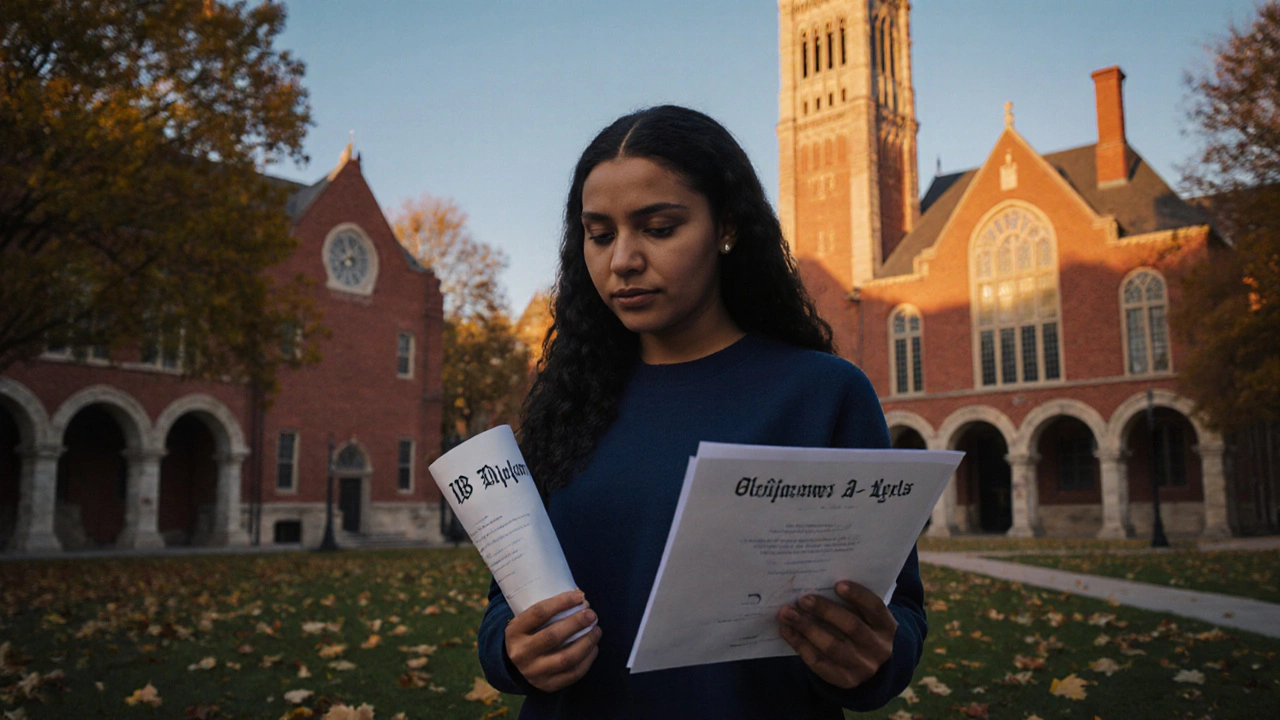Yale IB vs A-Levels: A Straight‑Talk Guide for Learners and Parents
When weighing Yale IB vs A-Levels, a comparison of two leading pre‑university curricula, one rooted in the International Baccalaureate framework and the other in the UK A‑Level system. Also known as IB vs A‑Level debate, it shapes choices about International Baccalaureate, a globally recognized two‑year program that emphasizes breadth, research, and community service and A‑Levels, subject‑specific qualifications taken in England, Wales, and Northern Ireland that focus on depth and exam performance. Both routes feed into university admission, the process by which colleges evaluate academic records, test scores, and personal statements to grant places, but they do so in different ways. The central question is simple: which curriculum gives you the best launch pad for the universities you aim for? Let’s unpack the core differences, the skills each builds, and the real‑world outcomes students see.
Key Factors to Consider When Choosing Between the Two
First up, curriculum structure. The IB spreads learning across six subjects, a Theory of Knowledge course, an extended essay, and Creativity‑Activity‑Service hours. That mix forces learners to juggle multiple disciplines, which can be a boon for students who thrive on variety and interdisciplinary thinking. A‑Levels, on the other hand, let you pick three or four subjects and dive deep, often leading to higher grades in those areas if you focus your study time. This depth‑first approach is a solid match for students who already know the field they want to specialize in, especially in subjects like maths, physics, or history. Next, think about assessment style. IB relies on a blend of internal assessments (projects, oral presentations, labs) and external exams. The internal pieces count for a sizable chunk, meaning teachers’ grading and your ability to manage long‑term projects matter a lot. A‑Levels are heavily weighted toward final exams, so test‑day performance is critical. If you’re comfortable with steady coursework and love the chance to explore topics beyond textbook answers, the IB’s mixed model might feel more natural. If you prefer a clear, high‑stakes exam—think of it as the sprint at the end of a marathon—A‑Levels fit that mold. Another major piece is university perception. In the US, admissions officers often view the IB as a strong indicator of academic rigor and global outlook, especially when paired with the extended essay that mirrors a college‑level research paper. Many US universities even grant credit for higher‑level IB scores, shortening your first year. Conversely, UK universities traditionally award points for A‑Level grades, and for subjects like medicine or engineering, they may require specific A‑Level subjects. So the “Yale IB vs A‑Levels” decision can hinge on where you want to study: the IB opens doors on both sides of the Atlantic, while A‑Levels lock in the UK route with clarity. Cost and logistics matter, too. IB schools often charge higher fees because they need trained teachers for the breadth of subjects and the extra administrative load of internal assessments. If you’re looking at state schools, A‑Levels may be more financially accessible. Location plays a role as well; the IB is available in many international schools, while A‑Levels are the default in most UK secondary schools. Consider whether you’re willing to commute, relocate, or even study abroad for the right program. Finally, reflect on your learning style. The IB promotes reflective thinking, research skills, and community involvement—perfect for students who enjoy writing, debate, and project‑based work. A‑Levels reward focused revision, exam technique, and mastery of a narrow subject set—ideal for those who excel at memorization and timed tests. Neither is inherently better; they simply align with different strengths. Putting it all together, you can see that Yale IB vs A-Levels is really a decision about how you want to learn, what universities you target, and which assessment style fits your personality. Below you’ll find articles that dig into adult learning theories, popular A‑Level choices for girls, strategies for teaching slow‑learners, and more—all of which can help you weigh the pros and cons of each pathway.
Ready to dive deeper? Browse the collection below to see real‑world examples, data‑driven insights, and practical tips that will sharpen your decision‑making. Whether you’re eyeing a place at Yale, a top UK university, or any college in between, the right curriculum choice can set the tone for a successful academic journey.

Yale Admission: Does the Ivy League School Prefer IB or A‑Levels?
- by Eliza Fairweather
- on 14 Oct 2025
Discover whether Yale prefers the International Baccalaureate or A‑Levels for admission, learn how each qualifies, and get a practical checklist to boost your chances.
